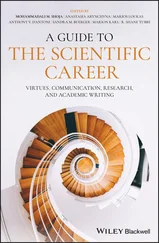George Gore - The Scientific Basis of National Progress, Including that of Morality
Здесь есть возможность читать онлайн «George Gore - The Scientific Basis of National Progress, Including that of Morality» — ознакомительный отрывок электронной книги совершенно бесплатно, а после прочтения отрывка купить полную версию. В некоторых случаях можно слушать аудио, скачать через торрент в формате fb2 и присутствует краткое содержание. Жанр: foreign_antique, foreign_prose, на английском языке. Описание произведения, (предисловие) а так же отзывы посетителей доступны на портале библиотеки ЛибКат.
- Название:The Scientific Basis of National Progress, Including that of Morality
- Автор:
- Жанр:
- Год:неизвестен
- ISBN:нет данных
- Рейтинг книги:3 / 5. Голосов: 1
-
Избранное:Добавить в избранное
- Отзывы:
-
Ваша оценка:
- 60
- 1
- 2
- 3
- 4
- 5
The Scientific Basis of National Progress, Including that of Morality: краткое содержание, описание и аннотация
Предлагаем к чтению аннотацию, описание, краткое содержание или предисловие (зависит от того, что написал сам автор книги «The Scientific Basis of National Progress, Including that of Morality»). Если вы не нашли необходимую информацию о книге — напишите в комментариях, мы постараемся отыскать её.
The Scientific Basis of National Progress, Including that of Morality — читать онлайн ознакомительный отрывок
Ниже представлен текст книги, разбитый по страницам. Система сохранения места последней прочитанной страницы, позволяет с удобством читать онлайн бесплатно книгу «The Scientific Basis of National Progress, Including that of Morality», без необходимости каждый раз заново искать на чём Вы остановились. Поставьте закладку, и сможете в любой момент перейти на страницу, на которой закончили чтение.
Интервал:
Закладка:
Nearly all modern discoveries of importance in physics or chemistry require long and difficult investigations to be made in order to completely establish their truth. When Crookes discovered Thallium, he saw the first sign of its existence in a momentary flash of green light in a spectroscope, but he had to expend upon the subject several years of most difficult labour, and a considerable sum of money, in order to prove the correctness of his suspicion that he had discovered a new metal. M. Lecocq de Boisbaudran discovered the metal Gallium and Bunsen discovered Rubidium and Caesium in a similar manner.
Discoveries in science, are usually made, not by trying to obtain some valuable commercial or technical result, but by making new, reliable, and systematic investigations. By investigating the chemical action of electricity upon saline bodies, Sir Humphrey Davy isolated sodium and magnesium, which has led to the establishment at Patricroft near Manchester, of the manufactures of those metals. By the abstract researches of Hofmann and others upon Coal-tar, many new compounds were discovered, and the extremely profitable manufacture of the splendid coal-tar dyes was originated.
Scientific discovery is the most valuable in its ultimate practical results when it is pursued from a love of truth as the ruling motive, and any attempt to make it more directly and quickly remunerative by trying to direct it to immediately practical objects, decreases the importance of its results, diminishes the spirit of inquiry, and sooner or later reduces it to the character of invention. The greatest practical realities of this age had their origin in a search after important truths entirely irrespective of what utilities they might lead to.
I do not intend by these remarks to imply that any new trades or improvements in manufactures have been or can be effected without the labours of inventors and practical men, but that there should be a more judicious division of labour: one man to discover new truths, another to put them into the form of practical inventions, and the business man to work them; because it is proved by experience, that in nearly all cases these different kinds of labour require men of widely different habits of mind, and that the faculties of discovery, invention, and practical working are very rarely united in one man.
Scientific investigations however, made in a manufactory, for the purpose of ascertaining the various sources of loss of materials, the circumstances which affect the amount or quality of the product; or made with the object of substituting cheaper or more suitable materials, or for varying their proportions, or for many other kindred objects, have in many cases resulted in great benefit to the manufacturer, and have formed the basis of successful patents. Some of the large brewers, chemical manufacturers, candle companies, and many others, constantly employ scientific men in this way to examine their materials, processes and products, and keep them acquainted with the progress of discovery and invention in relation to their own particular trades.
No art or manufacture is so perfect as to be exempt from the influence of discovery and invention, and no man can produce so perfect an article but that, by the aid of science, a better may be produced. Science and trade are mutually dependent, without the assistance of science, trade would be unable to supply our daily increasing wants, and without the pecuniary support of trade, science would languish and decay.
"As long as arts and manufactures are left to be directed and improved by simple experience, their progress is extremely slow, but directly scientific knowledge is successfully applied to them, they bound forward with astonishing speed." Look at the art of taking portraits; for hundreds of years it remained entirely in the hands of oil and water-colour painters with but little progress in rapidity of production, but directly science was applied to it in the form of photography, its advance in this respect became amazing. Fifty years ago photography was almost unknown, but immediately Messrs. Daguerre and Talbot, in 1844, made known their processes, the new art began to advance, and so rapid has been its progress, that at the present time many thousand persons are employed in its exercise, and millions of portraits have been taken with an accuracy and at a cost quite beyond the reach of the old method.
Many persons hardly know the difference between science and art; a still greater number cannot readily distinguish between a concrete science and a pure one; and nearly all persons confound discovery with invention. A science may be conveniently defined as a collection of facts and general principles which are to be learned; an art as a collection of rules which are to be followed: – Art therefore is applied science; and every art also has a basis in science, whether that basis has been discovered or not. Scientific principles underlie not only manufacturing processes, but also sculpture, music, poetry and painting.
Discoveries differ also from inventions: a scientific discovery is a newly found truth in science, which in the great majority of cases is not in the form of applied knowledge. An invention is usually a combination and application to some desired purpose, of scientific truths which have been previously discovered. When Oersted first observed a magnetic needle move by means of a current of electricity, he made a scientific discovery; but when Wheatstone and Cooke applied Oersted's discovery in their telegraph from Paddington to Slough, they made an invention. The success of the electro-plating process was dependent upon knowledge previously discovered. Mr. Wright, a surgeon in Birmingham, was led to the invention of the use of cyanide of potassium in electro-plating and gilding, by reading in Scheele's "Chemical Essay" (p.p. 405 and 406), that "if after these calces" ( i. e. , the cyanides of gold and silver) "have been precipitated, a sufficient quantity of precipitating liquor be added, in order to redissolve them, the solution remains clear in the open air, and in this state the ærial acid" ( i. e. , carbonic acid of the air) "does not reprecipitate the metallic calx."
Immediately a discovery is effected it is made public, and is afterwards incorporated in the ordinary text books of science, ready for the use of inventors; and in this way such books have become filled with valuable knowledge acquired by researches in past times. All this knowledge (which has cost millions of pounds and a vast amount of intellect and labour) has been given by its discoverers freely to the nation. Some idea of the number of scientific researches which have been made since the year 1800, may be obtained from the fact, that a mere list of their titles, with the names of the authors, occupies eight large quarto volumes, of about one thousand pages each, compiled and published at a cost of about ten thousand pounds, by the British Government and the Royal Society.
In discovery we search for new phenomena, their causes and relations; in invention we seek to produce new effects, or to produce known effects in an improved manner. The objects of the scientific discoverer are, new truth and greater accuracy; whereas those of the inventor, are increased usefulness and economy of results. The ancients classed inventors with the gods, because they considered them great benefactors to the human race. Discoverers may properly be viewed as priests and prophets of truth, because they both reveal new knowledge to mankind, and predict with certainty coming events.
A man cannot usually invent an improvement unless he possesses scientific knowledge, and, for that knowledge he must in nearly all cases resort to a scientific book or teacher. The great practical value of new scientific knowledge is proved by the fact, that when scientific discoveries are published, there are numerous inventors and practical men, who immediately endeavour to apply them to useful purposes. Since the first application of coal-tar to the production of dyes, every discovery in that branch of chemistry has been closely watched for a similar purpose.
Читать дальшеИнтервал:
Закладка:
Похожие книги на «The Scientific Basis of National Progress, Including that of Morality»
Представляем Вашему вниманию похожие книги на «The Scientific Basis of National Progress, Including that of Morality» списком для выбора. Мы отобрали схожую по названию и смыслу литературу в надежде предоставить читателям больше вариантов отыскать новые, интересные, ещё непрочитанные произведения.
Обсуждение, отзывы о книге «The Scientific Basis of National Progress, Including that of Morality» и просто собственные мнения читателей. Оставьте ваши комментарии, напишите, что Вы думаете о произведении, его смысле или главных героях. Укажите что конкретно понравилось, а что нет, и почему Вы так считаете.












